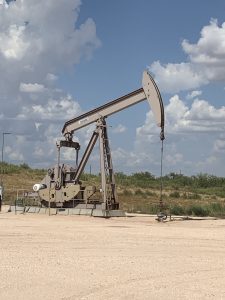
Did You Lose Money in Junk Shale Bonds or Other Oil and Gas Investments? We May Be Able to Recover Those Losses!
There is widespread disagreement when we will reach peak oil. Some very smart folks were predicting we had reached oil years ago. That was before the boom brought by shale oil and gas. What is clear is that we will producing oil for many years. Unfortunately, it is equally clear that the industry built on piles of debt is finally facing its day of reckoning.
Readers of this blog know that for years we have been publishing stories of bankruptcies in the shale industry. First it was low price, then fears that there was too much debt in the industry. Today it is coronavirus but unless prices jump dramatically and quickly, we see another big shakeout in the industry.
There is nothing wrong with investing in the energy sector. Unlike some industries, however, it seems like virtually everybody makes money in shale oil and gas except the investors.
If you bought into shale bonds and other energy sector investments on your own and without help from a broker, you are responsible for those decisions. We hope you are one of the few that made money. Many people, however, bought because of advice from stockbrokers and investment advisers. That too is okay if you told your broker that you were willing to accept high risk and weren’t dependent on your investments to fund retirement.
Once again, we are seeing claims from elderly investors, investors nearing retirement and investors more interested in preservation of capital than high risk being sold junk shale bonds.
Why? In many instances, brokers worried about losing customers to other investments. So when an investor said he or she wanted high yield, the broker sold them junk quality bonds without warning them of the risks and volatility.
Stockbrokers, investment advisers and their employers have an obligation to make “suitable” investment recommendations. Brokers who violate these suitability rules can be held responsible for their customers’ losses.
Industry publication oilprice.com expressed it best,
“As many company executives who hoped to drill their way out of debt are belatedly discovering, trying to squeeze a profit from shale-fracking operations is akin to trying to draw blood from stone with the industry having racked up cumulative losses estimated at more than a quarter of a trillion dollars.”
The Collapse of Chesapeake Energy and Whiting Petroleum
One of the early pioneers and leaders of the shale revolution, Chesapeake Energy is on the verge of collapse. A stock that was once almost $67 per share is today trading at 45 cents. It hit its lowest price in 26 years last week. The company announced in November that it may not be a going concern unless oil prices rebound significantly. With coronavirus reducing fuel demands, a price rebound doesn’t seem likely in the near term.
Another example is Whiting Petroleum. Its stock price was riding high in 2014, $353 per share. Last week it closed under $3, a loss of over 99%. It’s not just the stock price. In an effort to raise capital, Whiting sold shale bonds with a 6.25% yield. Recently those bonds were selling at steep discounts.
Once again. If your broker made all the right disclosures and recommended these to you knowing that you understood the risks, that is probably okay. Investors are telling us something entirely different, however.
To learn more about how to recovery your shale bond and oil junk bond losses, visit our oil and gas loss recovery page. Ready to see if you have a case? Contact us online, by email brian@mahanylaw.com or phone (202) 800-9791. Case accepted nationwide. Most cases accepted on a contingency fee basis. All inquiries are confidential and without obligation.
The post Shale Oil Investors Beware appeared first on Mahany Law.